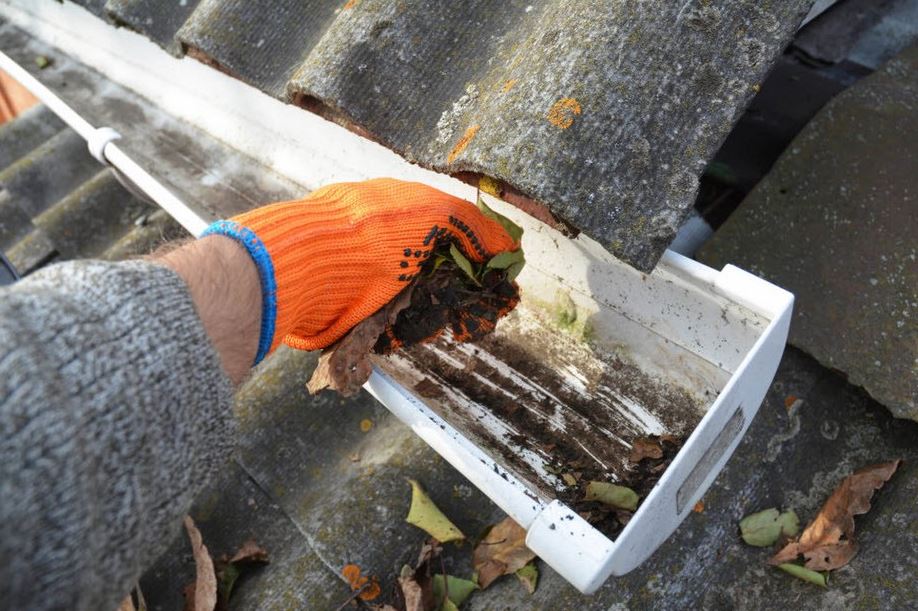Two essential committees in the Dwelling of Delegates voted back to again on Friday to approve an amended edition of a sweeping local weather monthly bill that would speed up the statewide target to attain carbon neutral emissions by 2045.
This material was republished with authorization from WTOP’s information partners at Maryland Matters. Indicator up for Maryland Matters’ cost-free e mail subscription today.
Two essential committees in the Residence of Delegates voted again to again on Friday to approve an amended version of a sweeping climate bill that would accelerate the statewide target to accomplish carbon neutral emissions by 2045.
The Setting and Transportation Committee and the Financial Matters Committee approved eleven amendments to the Local weather Solutions Now Act, which is slated to be debated on the Household floor on Monday.
The major changes contain delaying an interim greenhouse gasoline reduction intention by a yr, necessitating recently constructed properties to be geared up to switch to electric powered electricity and getting rid of all provisions relating to internet-zero college structures.
“This is not just about international climate alter in my feeling, this is also about community health and fitness and protection,” Del. Kumar Barve (D-Montgomery) informed the committee on Friday. He said that his committee has been speaking “very extensively for nearly seven months” with Sen. Paul Pinsky (D-Prince George’s), the guide sponsor on Local weather Answers Now Act.
This marked a shift from the 2021 variation of the climate legislation that fell aside on the previous working day of the legislative session due to irreconcilable distinctions concerning the two chambers.
Both Property committees permitted an modification that prolonged the date by which an interim greenhouse gas reduction goal — to decrease emissions to 60% of 2006 concentrations — need to be satisfied, from 2030 to 2031. The House’s local climate package had originally proposed to lower emissions by 2032, but delegates compromised with Senate leaders to hold off the concentrate on date by one calendar year as an alternative of two yrs.
Amid intense opposition from utility corporations and business property entrepreneurs previously this legislative session, the Senate taken off a provision that would have banned all recently produced buildings from using fossil fuels to supply house and drinking water heating by 2024. But the Property committees strengthened this section of the invoice by approving an modification to need all recently built properties to be “electric ready” commencing in January 2023.
In other words and phrases, new structures will have to have more than enough electrical ability and infrastructure to change fossil gas appliances and switch to an all-electric powered constructing normal in the long run comparatively effortlessly.
Nonetheless, some delegates expressed concern for building owners who have been in the preparing phases for a long time and may well have to scrap programs to guarantee a venture is “electric all set.”
The House committees also modified the monthly bill so that less properties would have to minimize greenhouse gasoline emissions. Additional specially, the evaluate now requires professional structures or multifamily household properties that are 35,000 sq. ft or bigger to lessen emissions by 20% below 2025 levels by 2035 and to attain net-zero emissions by 2040. The Property also exempted “manufacturing buildings” from the proposed making emissions criteria.
The Senate experienced proposed necessitating properties 25,000 square ft or larger to lower emissions by 30% beneath 2025 degrees by 2035, although significant buildings owned by the condition would have experienced to decrease emissions by 50% below 2025 degrees by 2030 and attain net-zero emissions by 2035. The House committees eliminated the different demands for large buildings owned by the point out.
The House committees also slice all provisions necessitating area school districts to develop internet-zero educational facilities. The Senate’s model of the monthly bill would have proven a grant fund of up to $3 million from fiscal yr 2024 by means of 2032 and demanded at the very least one college constructing created in each individual neighborhood university process to have carbon cost-free emissions, if funding is accessible.
“That does not signify we’re heading to end doing the job on it in foreseeable future a long time,” Barve claimed.
Del. Mary Lehman (D-Anne Arundel) claimed that the point out would be “missing an opportunity” if it did not involve new college structures to accomplish web-zero emissions inside of the in close proximity to future. “There are countless numbers of college buildings across the condition, and we’ll continue to establish these of course, so we just can’t depart individuals out,” she mentioned.
Whilst striking new internet-zero faculty properties from the bill would probably not have rapid greenhouse gasoline impacts, it would have been a fantastic signal “to have our colleges and public buildings guide the way and have our kids be in the very best, environmentally seem chopping edge surroundings,” mentioned Josh Tulkin, the executive director of the Maryland Sierra Club.
In area of an all-electrical new setting up code, the Senate proposed a examine done by the General public Services Fee to assess the influence of electrifying extra structures.
As a end result of requests from environmental advocates, the Property committees added a lot more parameters to the study, together with a provision that would involve the fee to consider the impacts of electrical power performance. The Household also removed a provision demanding gas businesses to establish investments the state requirements to make to just take on an supplemental load of electrification from properties and retiring gasoline amenities, which advocates nervous would be biased in favor of the utility organizations.
“The examine [by the Public Service Commission] additionally the intent language in the examine, in addition the making strength effectiveness standards…are all actually, really sturdy signals that Maryland needs to be a chief in moving off of gasoline,” Tulkin mentioned. “The creating is extremely pretty obviously on the wall,” and it would be astonishing if constructing builders were not anticipating an all-electric making typical in the potential, he ongoing.
The amended bill also now explicitly addresses the probable position of nuclear electrical power in the clean strength changeover by adding a few associates of the nuclear vitality field to a working group that would examine strategies for the state to increase its electrical power grid and the viability of nuclear producing services as a section of the clear energy transition.
Associates of the nuclear market experienced been urging lawmakers to identify the probable purpose of carbon-cost-free nuclear electrical power in conference the state’s ambitious weather objectives.
Del. Gerald Clark (R-Calvert) decided to vote in favor of the invoice since he had promised to do so if nuclear electrical power was acknowledged in the bill. “I just can’t assurance that I will vote sure for it on the floor,” Clark said.
Del. Melissa Wells (D-Baltimore Metropolis) reported she was “reluctantly” voting in favor of the monthly bill mainly because she felt it did not do adequate to assure solid labor expectations for the duration of the power changeover.
“My obstacle with this is that we generally set [labor standards] on the back again burner,” Wells mentioned. “A large amount of staff and my constituents genuinely want to see us shift anything that is significant, not only in generating their communities cleaner and more attractive but also to deliver jobs that will sustain them.”
The invoice would create a “Just Transition” operating team that would study workforce growth and schooling possibilities associated to electrical power performance and thoroughly clean strength technological know-how with a target on dislocated personnel in fossil fuel industries.
Immediately after some committee associates elevated fears about how the bill’s proposed developing criteria would impact distinct industries, Del. C.T. Wilson (D-Charles), the chair of the Economic Matters Committee, mentioned that there will be a great deal of alternatives in the potential to make modifications to the state weather procedures.
“Between now and 2040, we will have a multitude of sessions to occur back again and proceed to address this. This is merely acquiring the ball rolling and pointing the path in which we are rolling — which is to test to be as electrified as probable and minimize our greenhouse gasses,” Wilson reported.



More Stories
How to turn your front garden into a space for entertaining
Things a Good Real Estate Agent Will Do
Today’s Homeowner Radio Podcast | September 24, 2022